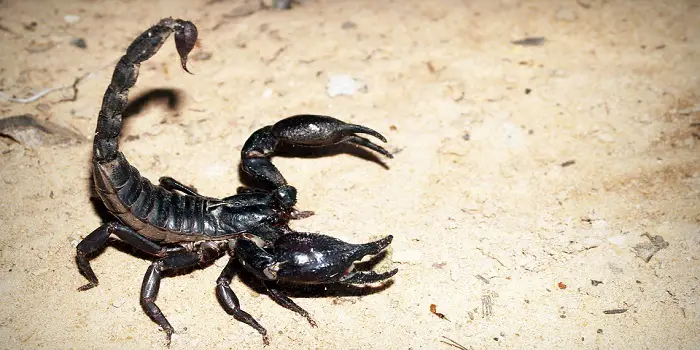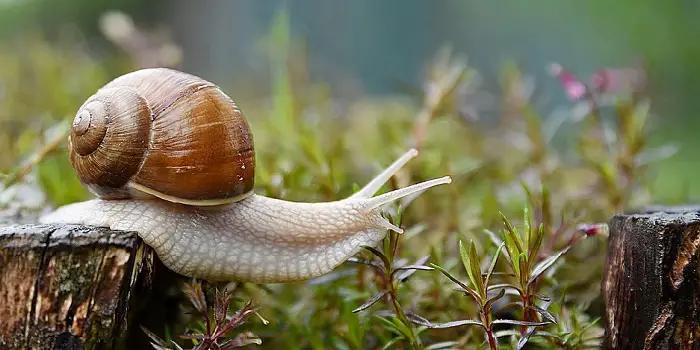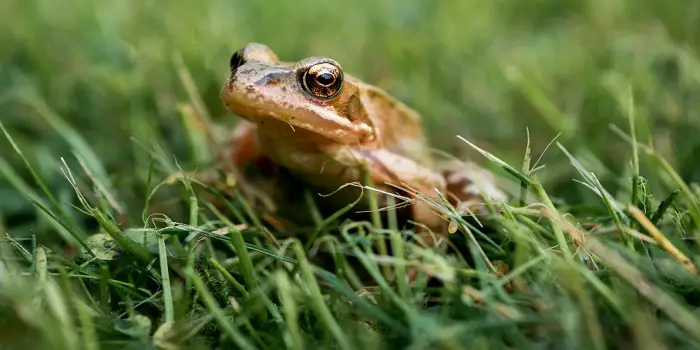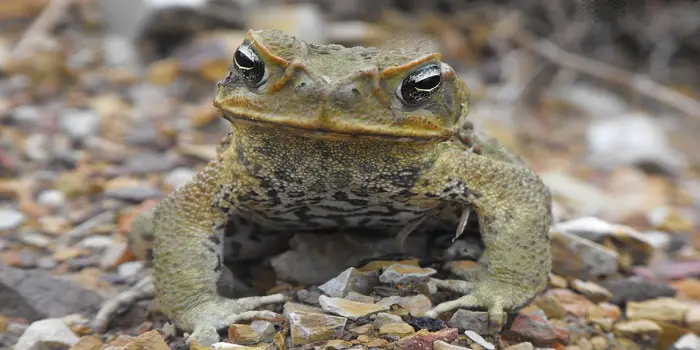
If you live out in the country and next to a farm or ranch with cattle, chances are you may find a cow or two in your yard.
While cows are docile creatures, they do love to eat grass, plants, and flowers which may put your lawn or garden in danger.
To prevent this from happening, you must employ an effective strategy that keeps them out of your yard.
Although the fence is the first line of defense, it can be compromised without your knowledge.
But you can keep cows from trampling in your yard if you employ the proper methods.
Most of what follows are time-honored means of keeping the cows away from your lawn and garden.
1- Fencing
As mentioned before, a fence is what initially keeps cows out of your yard.
It is a barrier that prevents easy entry, and there is a wide variety available when it comes to installing one on your farm.
However, fences can become damaged over time or sometimes suddenly, such as after a storm.
Check your fence periodically for any weaknesses and shore them up before they become compromised to the point where curious cows start to enter.
Some of the most common fencing options for deterring the cows from your yard include…
a) Shared Fencing:
This is where you share the duties of maintaining fencing between you and your neighbor with the cows.
This will depend in large part on the laws within your state.
In some states, the responsibility is on the farmer or rancher, while in other states, the burden is on the individual property owner.
Be sure to check with your state and local laws about fencing.
Plus, you should work with the farmer or rancher to see what solutions can be put into place in terms of fencing.
b) Barbed Wire:
This is the most common of all fencing used to deter cows, calves, bulls, and oxen. It is also one of the cheapest.
The posts are set into place, and the barbed wire is usually strung horizontally on poles that tend to be just a few feet apart.
The advantage of barbed wire is that it can prevent all but the most determined of cows from pressing against the fence.
However, it can also cause injury to the animal as well.
While most injuries are simple cuts and scratches, they can become infected on rare occasions and lead to a more serious issue over time.
Plus, a poorly maintained barbed wire fence might allow the animal to become entangled.
That makes extraction a tricky endeavor without causing any more harm to the cow.
A variation of the barbed wire version is the woven wire fence, sometimes called a field fence.
Because of the interlacing of the wire, it does not fall apart when pressure is applied. This prevents the cows from creating holes in the fence.
Plus, it can keep other farm animals such as goats, sheep, and poultry from entering your yard.
You should create a woven wire fence that is at least five feet in height with poles no further than eight feet apart.
It will need to be strong, so be sure the fence posts are at least two feet into the ground with concrete reinforcement.
While this type of fence will need regular inspection and maintenance, it is arguably the cheapest of all effective fencing solutions.
c) Electric or Hot Wire:
This is a common solution in terms of fencing property to keep the cows away. The premise is a simple one.
The fence has a low-voltage charge which is enough to shock the cows when they come into contact with the fence but not enough to do any real harm.
Of course, it will shock anything that comes into contact with the fence, including humans and pets.
A typical electric or hot wire fence runs about 2,000 to 3,000 volts through three or four wires that run about three feet above ground level.
If the 2,000 to 3,000 volts is not stopping the cows, then you can up the voltage to 5,000, which should be enough to deter them.
Despite the added cost of electricity, a hot wire fence is one of the most cost-effective means of keeping cows out of your property.
Such a fence requires fewer fencing posts compared to a barbed or woven wire fence.
Plus, it is inherently strong, which means that with some maintenance, it can last up to 40 years or more before it needs to be replaced.
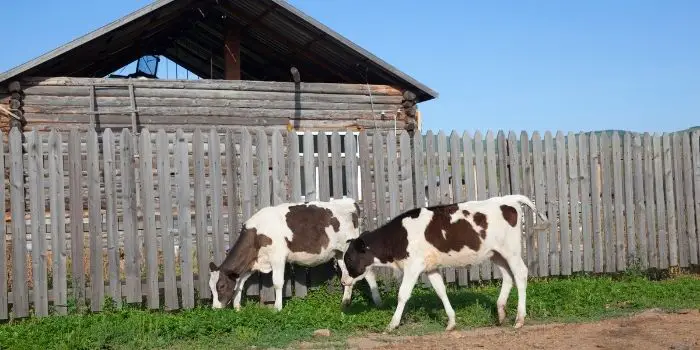
d) Wood fencing:
A wooden fence offers the benefit of hiding from the cows that are in your yard.
If you use strong, thick wood, it can withstand the force that a cow may apply using its weight.
However, it is not the perfect solution for all occasions.
For one thing, wooden fencing can be expensive significantly if it extends across a considerable area.
But it may be perfect for protecting a small garden or area.
You will need to treat the wood for the wooden fence to prevent the infestation of termites, mold, insects, and bacteria.
Not to mention that it needs to be reinforced to prevent wind and water damage.
e) Living Fence:
This is a barrier consisting of trees, shrubs, or a combination of the two.
The downside is that it will take years for such a barrier to grow under normal circumstances to become effective.
But you can put up another fencing around it until it is strong enough.
Once in place, the barrier should keep the cows out of your property.
However, the shrubs or trees used should be quite strong such as the following.
- Bottle Brush
- Cypress
- Hibiscus
- Grevillea
Keep in mind that cows love to nibble on leaves and plants, but if the shrubs or trees are healthy enough, they should not do much in the way of damage.
Plus, it provides a shady spot for the cows to rest during summer.
The living fence is effective and attractive and provides a visual and physical barrier to your property.
If you want to avoid the unsightly presence of a fence, you can also employ natural barriers to protect your property from cows.
A barrier with a 90-degree angle that is at least six feet tall is too steep for cows to cross.

2- Herding Dogs
If you need to deter cows, buffalos, or bison from your yard without building a fence, there are also some natural solutions that can help.
Dogs are often used to direct cows, especially when on the move.
Their predatory nature is easily channeled into herding cows when you choose the right breed.
- Australian Cattle Dog & Australian Shepard
- Belgian Sheepdog
- Border Collie
- German Shepard
In addition to the farmer that owns the cows, such dogs can be used by property owners to keep the cows away.
Dogs are territorial in nature and will not let the cows cross a specific point.
3- Scare Tactics
Cows can be easily scared away from your property.
While it is not advised to throw stones or hard objects at the cows, you can use simple sticks to tap them, which will cause them to flee.
You are required to get close enough to the cows for this to work.
Plus, the cows may run away at the sight of you approaching.
Most cows have a perimeter that they will run away from once you get close enough.
In addition, cows do not like high-pitched sounds generated by yelling, screaming or the barking of dogs.
This means that your pet dog, even if they are not a herding dog, can be effective if they protect the property with its barking.
Plus, waving a long stick while yelling and approaching the cows can work to run them off.
4- Eliminate Food that Attracts Cows
If the cows are coming into your yard to nibble or eat specific plants, then you should get rid of such plants.
While cows will munch on common grass, there are certain types of plants they love even more.
By getting rid of such plants, you can lower their determination to come onto your property.
Plants that are poisonous and native to the region can also be used as a deterrent for cows and cattle.
Most cows understand which plants and flowers are poisonous; they won’t eat them and will try to stay away from them.
Few of these poisonous plants include:
- Chokecherry
- Monkshood
- Poison Hemlock
- White Camas
- Timber milkvetch
- Tall and Low Larkspur
You can place some of these poisonous plants near the fence line to deter the cows.
The Conclusion
Cows can be quite curious, so even if you have placed all the deterrents, a cow may still wander onto your property to explore or look for food.
Consider that cow’s associate humans with food, so they may even come to your door.
This is especially true of calves which tend to be more curious and adventurous compared to adult cows.
If you are having a persistent issue with cows coming into your property, talk with the farmer or rancher.
It is in your interest to keep the cows on their property.
So, calmly work out a solution that benefits you both.
However, you should employ at least one or more of the techniques in this article to help prevent a cow or two from finding an opening and wandering onto your property in search of food.

Welcome to ProShieldPest.com. I am Tina Jones. I have been working as a pest removal professional in Winslow, Arizona lately. At present, I love to spend my time with my family as a retiree.
Here I share all my knowledge and experiences to help people understand better how they can stop pests at their homes without actually killing them. Hopefully, the information you will find here will help in safeguarding your home! You can check more about me here.

